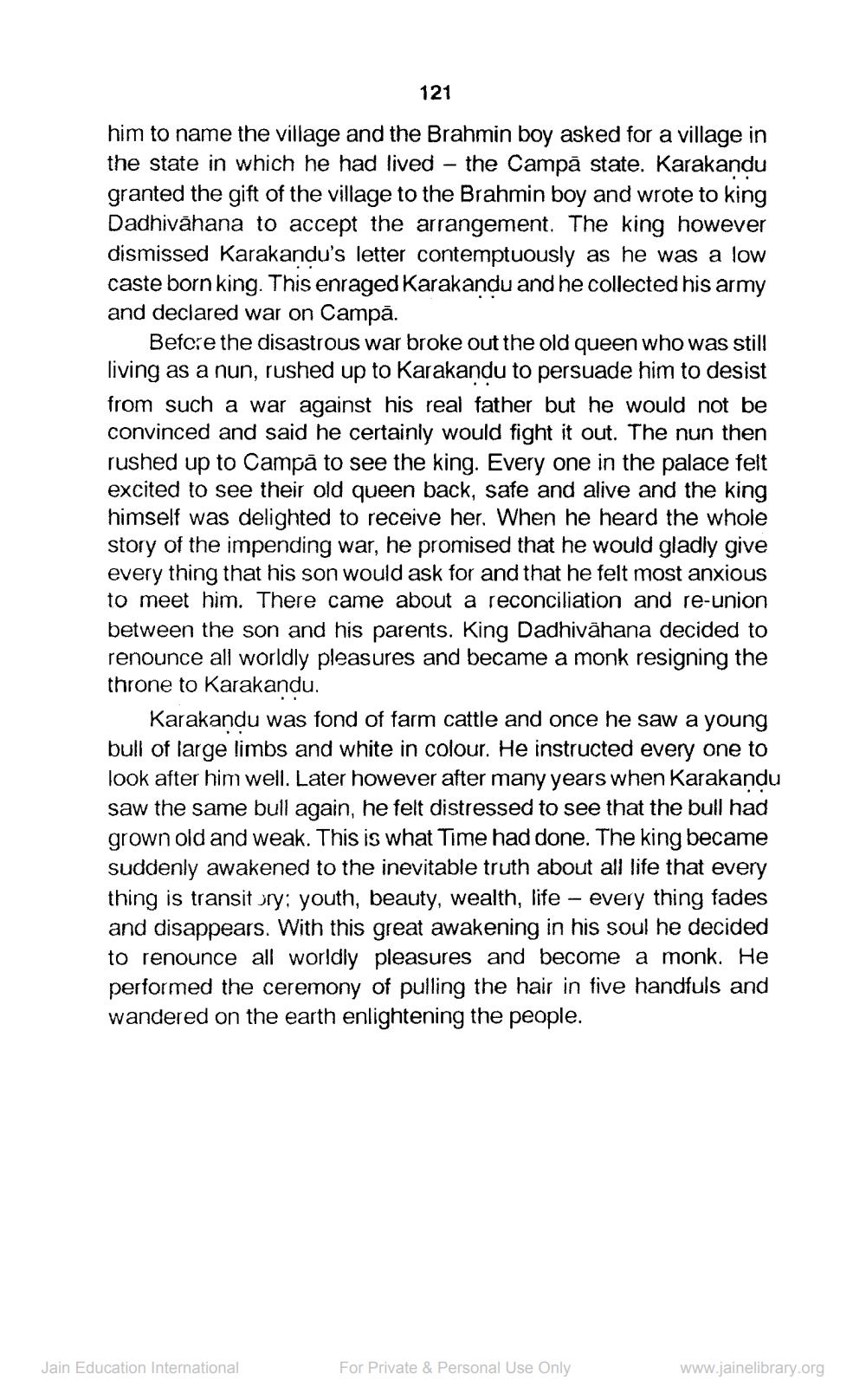________________
121
him to name the village and the Brahmin boy asked for a village in the state in which he had lived – the Campā state. Karakandu granted the gift of the village to the Brahmin boy and wrote to king Dadhivāhana to accept the arrangement. The king however dismissed Karakandu's letter contemptuously as he was a low caste born king. This enraged Karakandu and he collected his army and declared war on Campā.
Before the disastrous war broke out the old queen who was still living as a nun, rushed up to Karakandu to persuade him to desist from such a war against his real father but he would not be convinced and said he certainly would fight it out. The nun then rushed up to Campā to see the king. Every one in the palace felt excited to see their old queen back, safe and alive and the king himself was delighted to receive her. When he heard the whole story of the impending war, he promised that he would gladly give every thing that his son would ask for and that he felt most anxious to meet him. There came about a reconciliation and re-union between the son and his parents. King Dadhivahana decided to renounce all worldly pleasures and became a monk resigning the throne to Karakandu.
Karakandu was fond of farm cattle and once he saw a young bull of large limbs and white in colour. He instructed every one to look after him well. Later however after many years when Karakandu saw the same bull again, he felt distressed to see that the bull had grown old and weak. This is what Time had done. The king became suddenly awakened to the inevitable truth about all life that every thing is transitory: youth, beauty, wealth, life - every thing fades and disappears. With this great awakening in his soul he decided to renounce all worldly pleasures and become a monk. He performed the ceremony of pulling the hair in five handfuls and wandered on the earth enlightening the people.
Jain Education International
For Private & Personal Use Only
www.jainelibrary.org




